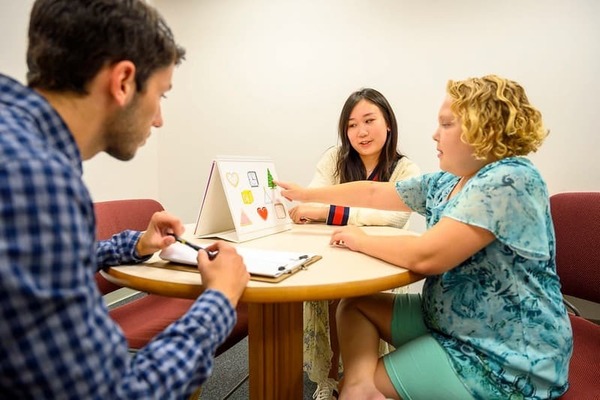Developmental Science
Why earn a Ph.D. in developmental science at Notre Dame?

As a doctoral student in our developmental program, you will join a vibrant team of faculty and students who engage in cutting-edge research on foundational topics in the study of human development across the lifespan. Working alongside mentors you will develop skills to conduct original research and to publish in leading journals.
Our faculty
The research interests of our faculty are wide-ranging, including topics in cognitive and social cognitive development, developmental psychopathology, socioemotional development, and aging. These topics are studied from a lifespan perspective that emphasizes the way dynamic transactions across ecological settings influence trajectories of continuity and change across the life-course.
Our work examines patterns of change in underrepresented and diverse populations, and trajectories that are both typical and atypical. Faculty also engage in translational research which applies basic developmental research findings into evidence-based programs such as clinical interventions and educational practice.
Professionalization
We are committed to providing you with the instruction, experience, support, and encouragement to help you reach your career goals. Many of our students go on to teach and do research as university faculty members in psychology and related disciplines; or pursue research opportunities in fields where developmental science can make a difference in the lives of children, parents, families, and communities.
Distinctive marks of excellence of your graduate training in developmental science include the opportunity it affords for ongoing professional development through weekly meetings of developmental students and faculty; a speaker’s series that prioritizes the work of under-represented scholars on diversity and inclusion-related topics; the supportive collaboration within lab teams; and synergy with other doctoral program areas that provide additional opportunities for training and collaboration.
Learn more about graduate professional development
Additional opportunities
Like many graduate students in developmental science, you have the opportunity to pursue a doctoral minor in Quantitative Psychology, which is a highly valued certification of your advanced training in data analytic strategies.
You can also complete certification training in pedagogy, course design, and effective teaching practices from Notre Dame’s Kaneb Center for Teaching Excellence; and there are opportunities to lead course discussion sections and on occasion to teach a developmental course as an instructor of record. The doctoral minor in Quantitative Psychology, certifications of teaching excellence, and actual teaching experience will provide you with impressive additional credentials alongside your demonstrated research competence when you pursue post-doctoral careers in developmental science.
Learn more about the resources and opportunities avaliable to you
Related centers, institutes, and special programs.
The developmental science area features two important centers: The Shaw Center for Children and Families and the Institute for Educational Initiatives. In addition, some developmental faculty and doctoral studies are also affiliated with the Kroc Institute for International Peace Studies, which provides additional opportunities for training and research.
Doctoral minor in developmental science
Graduate students in other doctoral areas of the psychology department can also pursue a doctoral minor in developmental science, which increases opportunities for collaboration across doctoral areas of the Department.
Contact
Have questions about the graduate program in developmental sciences? Contact:
Dr. Daniel Lapsley
Area Director - Developmental Sciences
Phone: 574-631-1264
Email: danlapsley@nd.edu